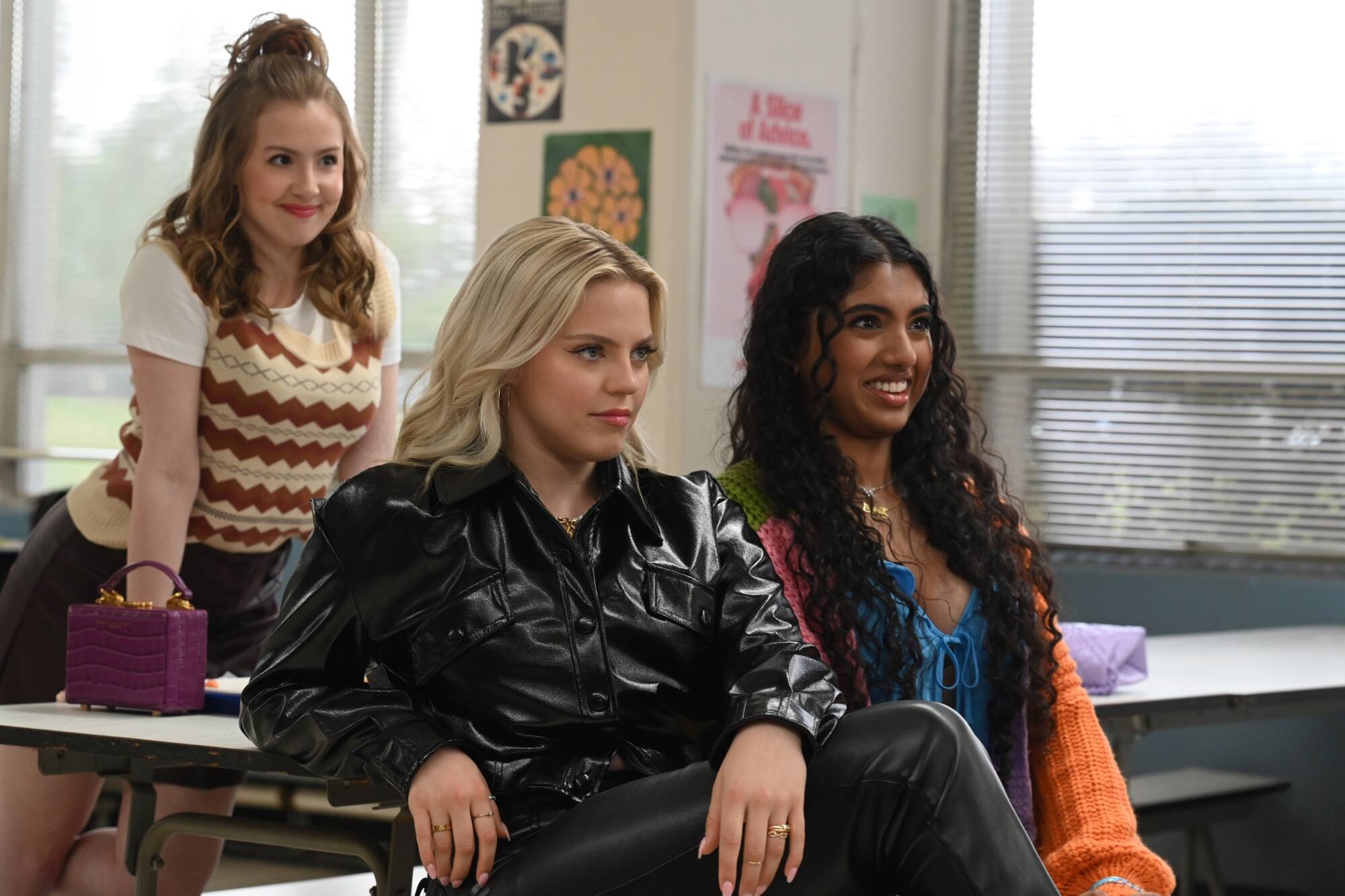The new “Mean Girls,” an adaptation of a 2017 Broadway musical rather than a remake of the 2004 film, is a surprising early-year hit. Its musical numbers are exciting and memorable; its themes still impactful 20 years later. It’s well worth catching, especially now in a customary January drought for new releases.
“Mean Girls” is so much fun when people are singing. The musical numbers are exciting and kinetic — they’re fun and weird and sharp. They’re so much fun that, unfortunately, when people aren’t singing scenes feel almost flat in comparison.
Like the familiar source material, “Mean Girls” is a “cautionary tale” about friendships and facades in the cutthroat world of high school. It’s a story that’s familiar. The film hits all the same beats that viewers will be familiar with from the 2004 original. Except with singing and dancing.
Angourie Rice leads as Cady Heron, a formerly home-schooled student who’s spent her life in Africa with her scientist mother. She struggles to find her place at North Shore High School but finds herself under the wing of “queen bee” Regina George — brought to life in a killer turn by Reneé Rapp.
At the same time, Cady befriends the artsy duo of Janis and Damian, portrayed in perhaps the film’s best performances by Auli’i Cravalho and Jaquel Spivey. The pair task Cady with spying on Regina and her gang of “Plastics,” Gretchen played by Bebe Wood and Karen played by Avantika.
Of course, drama ensues. People are hurt, and Cady must find out what she wants and who she will be. There’s romance and friendship on the line.
The musical sequences in “Mean Girls” are something special. The lyrics are fun and imaginative, and the choreography is presented with a level of spectacle that caught me entirely by surprise. Standout tracks like “Apex Predator,” “I’d Rather Be Me” and “Revenge Party” are densely choreographed with dozens of actors on screen — with dynamic and original camera work further elevating the sequences.
The film also makes an impression with its sharp integration of social media. The film in more than one instance progresses its narrative through the medium of vertical-video platforms like TikTok. It wields contemporary online culture in a way that probably ought to have fallen flat. There’s a sense of literacy elevating these sequences where we see high schoolers dunking on Regina George through the medium of “Avatar: The Last Airbender” memes or applying filters while they participate in viral trends.
I love musicals. By all accounts, I love them more than the average moviegoer. I don’t think it should be a controversial take that life would be better with more singing and dancing. The songs in “Mean Girls” make it something special and exciting — something that’s going to stick with me for far longer than I realized. In the days since I’ve seen the film, the soundtrack has been in regular rotation with no signs of stopping.
I didn’t expect “Mean Girls” to wholly floor me, but its music was great, its performances are fun and memorable, and, in a shocking twist, this well-regarded 2004 narrative still holds up. There are interesting pontifications here about individuality, facade, friendship and feminism — themes that transcend the silly high school comedy they’re wrapped in.
For all that, it’s strange that “Mean Girls” seems almost afraid of itself. As previously mentioned, the sequences where people aren’t singing largely just aren’t up to the same caliber. When people aren’t singing, the film isn’t half as radical or daring. It’s far from bad, but its static conversations feel worse when they’re sandwiched between revelatory sequences of song and dance.
“Mean Girls” is at its best when it’s weird. Fortunately, it often is. It remains a sharp satirical portrayal of high school cliques, drama and relationships, now with something of a contemporary refresh 20 years after the original.


